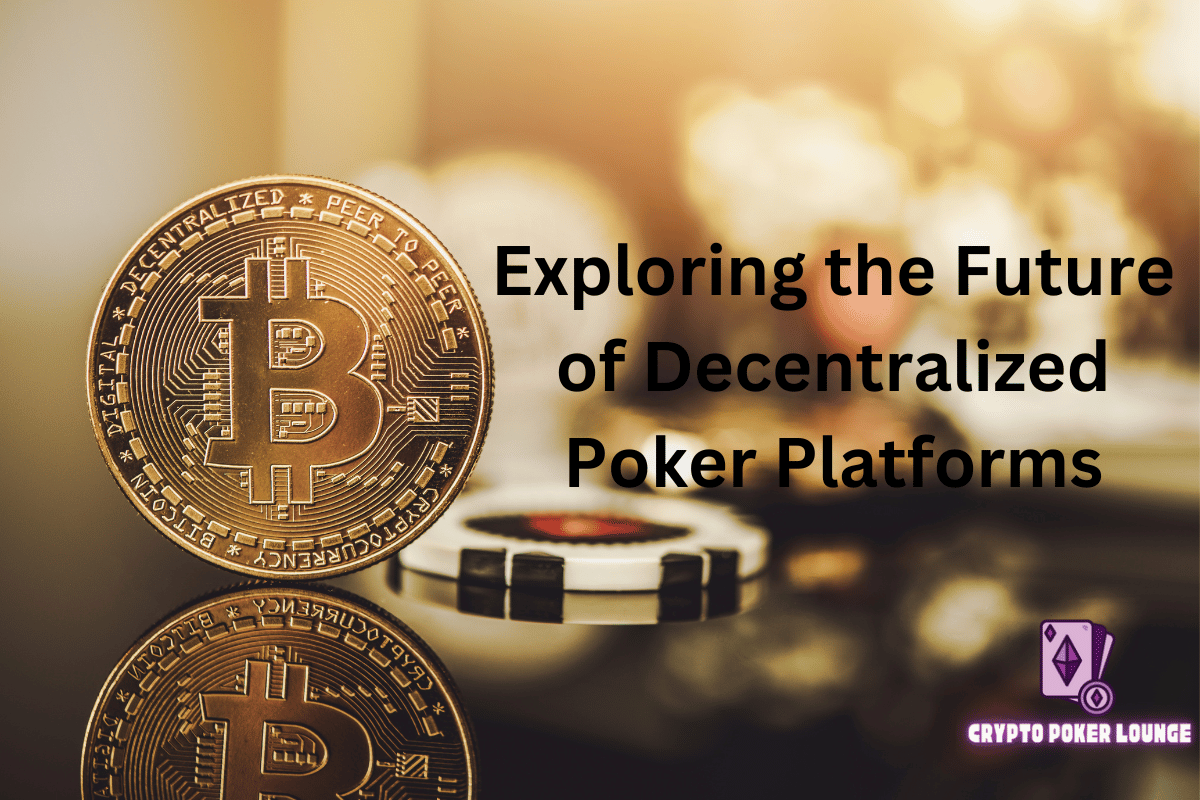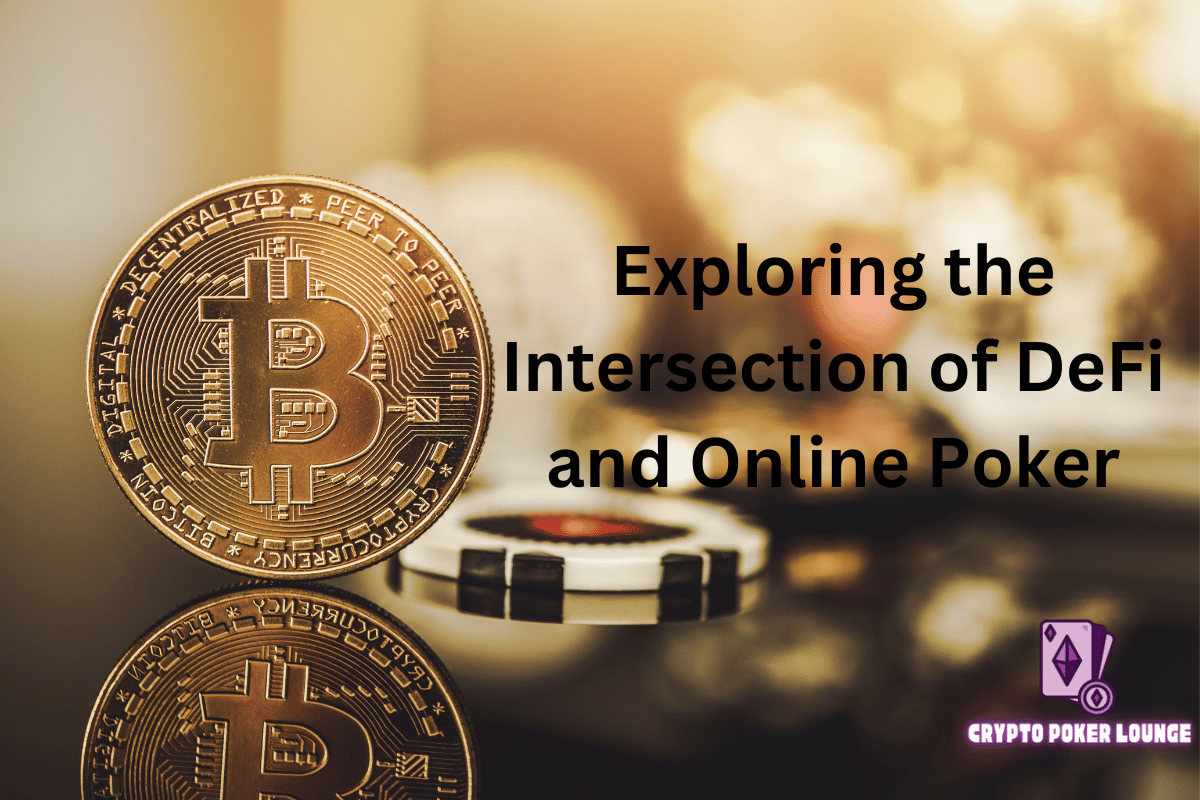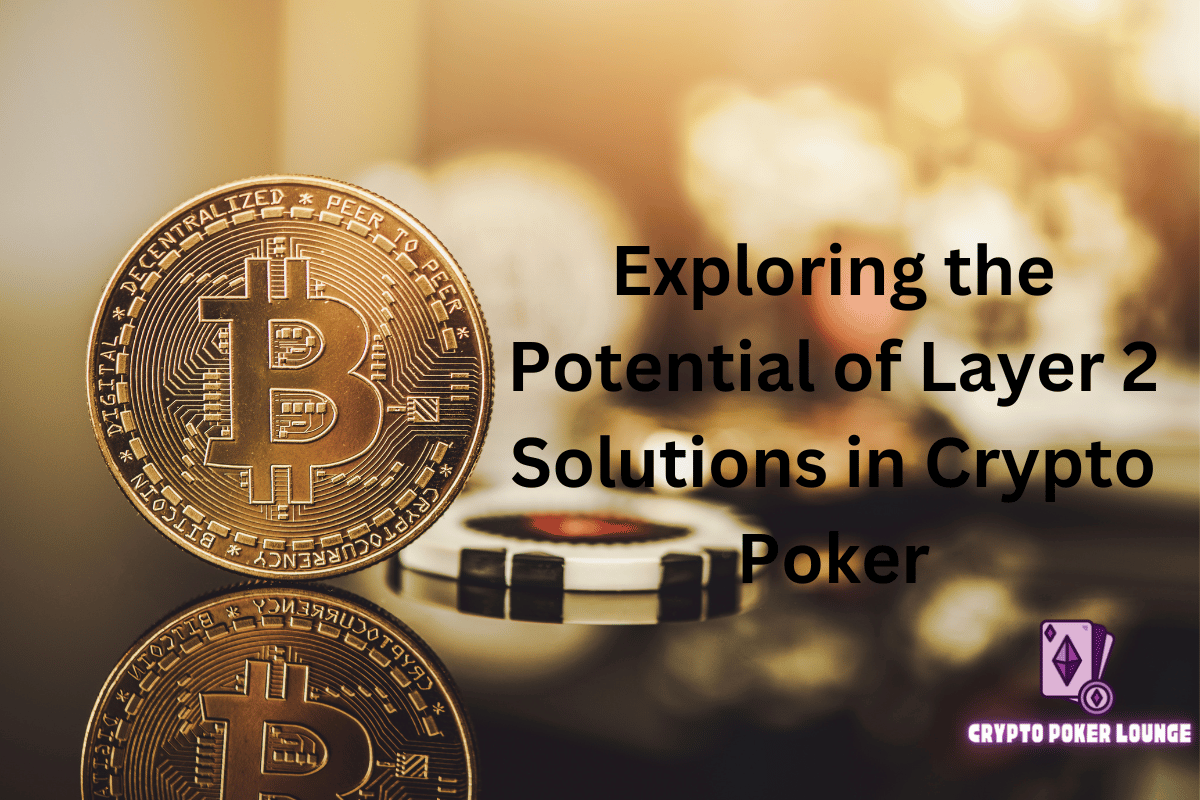
As we shuffle the cards of innovation and deal with the hand that the future holds for decentralized poker platforms, it’s intriguing to ponder the ways in which this technological shift could redefine the landscape of online poker.
The potential for increased transparency, security enhancements, and lower fees beckons us to explore how decentralized platforms may revolutionize the way we engage with the game.
In a world where trust and fairness are paramount, what could this new era of decentralized poker mean for players and the industry as a whole?
Evolution of Online Poker Platforms
In the realm of online gaming, poker platforms have metamorphosed significantly over the years, adapting to technological advancements and user preferences. Game fairness and player anonymity are two critical aspects that have shaped the evolution of these platforms.
Ensuring game fairness has been a top priority for online poker platforms. Through the use of advanced algorithms and random number generators, platforms have been able to maintain a high level of integrity in gameplay. These technologies not only simulate real-life card shuffling but also prevent any form of cheating or bias, creating a level playing field for all users.
Player anonymity has also been a key focus in the evolution of online poker platforms. By allowing users to participate without revealing their true identities, platforms have fostered a sense of security and privacy among players. This anonymity not only protects users from potential threats but also adds an element of mystery and excitement to the gaming experience.
As online poker continues to evolve, these foundational principles of game fairness and player anonymity will remain essential in shaping the future of the industry.
Benefits of Decentralization in Poker
The evolution of online poker platforms has paved the way for a new era in the industry, highlighting the significant benefits that decentralization brings to the game. Decentralization in poker offers an improved player experience by eliminating the need for intermediaries, thus reducing delays in transactions and ensuring quicker payouts. With decentralized governance, players have a more significant say in the platform’s decision-making processes, fostering a sense of community and empowerment among users.
Transparency in Decentralized Poker
Utilizing blockchain technology enhances the transparency of decentralized poker platforms, revolutionizing how players engage with the game. This innovation brings forth trustless transactions and decentralized governance, ensuring a more secure and fair gameplay environment for all participants.
Here are three key aspects highlighting the transparency in decentralized poker:
-
Trustless transactions: Smart contracts on the blockchain automate payouts and eliminate the need for intermediaries, fostering trust among players by ensuring that winnings are distributed fairly and transparently.
-
Decentralized governance: Community-driven decision-making processes empower players to have a say in the platform’s development, ensuring that rules and policies are transparent and agreed upon by consensus.
-
Immutable ledger: The distributed nature of blockchain technology creates an immutable ledger of all transactions and gameplay actions, providing players with a transparent record of all activities on the platform.
Security Enhancements in Poker Platforms
As we look towards the future of decentralized poker platforms, our focus shifts to implementing robust security enhancements.
Enhanced player authentication methods, such as biometrics or multi-factor authentication, can fortify user identities.
Incorporating blockchain data encryption and advanced fraud detection technologies will be pivotal in safeguarding player information and ensuring fair gameplay.
Enhanced Player Authentication
Incorporating advanced biometric authentication methods can significantly bolster the security measures in decentralized poker platforms, ensuring a more robust player verification process. Enhanced player authentication not only contributes to improved verification but also plays a pivotal role in facilitating secure transactions within the platform.
Leveraging cutting-edge technologies like facial recognition, fingerprint scanning, and voice authentication can revolutionize the way players interact with decentralized poker platforms. By integrating these biometric features, platforms can enhance user experience while fortifying security protocols, creating a safer and more trustworthy environment for players to engage in poker games.
This heightened level of authentication adds an extra layer of protection against unauthorized access and fraudulent activities, instilling confidence in users regarding the platform’s integrity and reliability.
- Facial recognition technology
- Fingerprint scanning
- Voice authentication
Blockchain Data Encryption
Enhancing decentralized poker platforms with blockchain data encryption fortifies security measures and safeguards player information from unauthorized access. By implementing blockchain privacy protocols, sensitive data such as player identities and transaction details are encrypted, ensuring secure transactions within the platform.
This encryption technology not only enhances security but also promotes decentralized governance by allowing players to have more control over their personal information. Data protection is a critical aspect of ensuring trust within decentralized poker platforms, and blockchain data encryption plays a pivotal role in achieving this.
As the industry evolves, incorporating robust encryption mechanisms will be essential to maintain the integrity and security of these platforms, fostering a safer and more secure gaming environment for all players involved.
Fraud Detection Technology
Utilizing advanced fraud detection technology strengthens the security infrastructure of poker platforms, ensuring a more reliable and trustworthy gaming experience for all users.
-
Real-Time Monitoring: Constant monitoring of player activities can quickly identify any suspicious behavior or anomalies.
-
Behavior Analysis: Analyzing player behavior patterns allows for the detection of unusual or fraudulent actions.
-
Automated Alerts: Instant notifications and alerts can be generated based on predefined criteria, enhancing the platform’s responsiveness to potential threats.
Lower Fees for Players
By implementing a dynamic fee structure, decentralized poker platforms can effectively reduce costs for players while maintaining sustainability and competitiveness in the ever-evolving online gaming landscape. Fee reduction is a crucial aspect that directly impacts player benefits. Through innovative cost savings strategies, players can experience tangible advantages such as lower rake percentages or decreased transaction fees. These savings translate to more winnings in the pockets of players, fostering increased participation and engagement on decentralized platforms.
One innovative approach to achieving lower fees for players is the utilization of blockchain technology. By leveraging smart contracts and decentralized payment systems, transaction costs can be significantly reduced, leading to a more cost-effective gaming experience for users. Additionally, the implementation of tokenization models can offer players exclusive perks and discounts, further enhancing the value proposition of decentralized poker platforms.
Autonomy and Control for Users
With the evolution of decentralized poker platforms, users are empowered with unparalleled autonomy and control over their gaming experience. This shift towards user empowerment and decision-making autonomy marks a significant advancement in the online poker industry.
Here are three key aspects highlighting the autonomy and control users now have:
-
Secure and Transparent Transactions: Users can now engage in peer-to-peer transactions without the need for intermediaries, ensuring transparency and security in their financial dealings.
-
Customizable Gaming Environments: Decentralized platforms allow users to tailor their gaming experience to suit their preferences, from choosing table stakes to creating private games with specific rules.
-
Community Governance: Through decentralized governance models, users have a say in the platform’s development and direction, fostering a sense of ownership and collaboration within the community.
This enhanced autonomy and control not only elevate the user experience but also pave the way for a more inclusive and innovative poker ecosystem.
Innovation in Decentralized Poker Technology
Innovatively integrating blockchain technology has revolutionized the landscape of decentralized poker platforms, propelling advancements in security, transparency, and user experience. This integration has enabled the creation of a robust token economy within these platforms. Through the use of custom tokens, players can engage in poker games, tournaments, and other activities, with the tokens serving as a medium of exchange that enhances liquidity and efficiency within the platform.
Moreover, player governance has been significantly enhanced through decentralized poker technology. Smart contracts and blockchain technology allow for transparent and autonomous decision-making processes. Players can participate in key decisions regarding platform updates, fee structures, and even game rules. This level of engagement fosters a sense of community ownership and trust among users.
Impact on Online Poker Industry
The integration of blockchain technology into decentralized poker platforms has had a profound impact on the online poker industry, reshaping the way players interact and engage with virtual poker games. This transformative shift brings with it a set of challenges and opportunities that are shaping the future landscape of online poker.
Regulatory ChallengesImplementing decentralized platforms while complying with varying global regulations poses a significant hurdle for the industry.
Market CompetitionDecentralized poker platforms are introducing new models of gameplay and player interaction, intensifying competition among online poker providers.
Innovative Payment SolutionsBlockchain technology offers secure and transparent transactions, revolutionizing the way players deposit, withdraw, and manage their funds in online poker games.
As the online poker industry navigates these regulatory challenges and embraces the innovations brought by decentralized platforms, market competition is driving providers to enhance their offerings and adapt to the evolving landscape.
Future Trends in Decentralized Poker
As we look ahead to the future of decentralized poker, two key trends stand out:
- The utilization of blockchain technology for enhanced transparency in gameplay
- The implementation of smart contracts to streamline efficiency in transactions and gameplay interactions
These advancements are poised to revolutionize the way online poker is played, offering players a more secure and reliable gaming experience. By leveraging these cutting-edge technologies, decentralized poker platforms are set to redefine the landscape of online poker in the coming years.
Blockchain for Transparency
How can blockchain technology revolutionize the transparency of decentralized poker platforms in the future? By integrating blockchain technology, decentralized poker platforms can ensure fair gameplay and enhance transparency through:
-
Immutable Ledger: Every transaction and gameplay activity is securely recorded on the blockchain, making it tamper-proof.
-
Transparent Smart Contracts: Smart contracts govern the rules of the game, ensuring that all players have equal opportunities and that outcomes are determined fairly.
-
Real-Time Auditing: Blockchain allows for real-time auditing of gameplay data, providing players with instant access to the history of hands played and outcomes.
Blockchain integration in decentralized poker platforms not only promotes trust among players but also sets a new standard for transparency in online gaming.
Smart Contracts Efficiency
Integrating advanced algorithms into smart contracts can significantly enhance the efficiency and reliability of decentralized poker platforms, paving the way for seamless gameplay experiences in the future. Smart contract audits ensure the security and integrity of the platform, offering players a trustworthy environment.
Scalability is crucial to accommodate a growing user base without compromising performance. By optimizing smart contracts for speed and cost-effectiveness, decentralized poker platforms can offer a competitive edge against traditional centralized counterparts.
Furthermore, implementing token economies within governance models can incentivize active participation and promote a fair and transparent ecosystem for all users. These advancements not only streamline operations but also foster a community-driven approach that aligns with the decentralized ethos of blockchain technology.
Playing Poker in a Decentralized World
In a decentralized world, poker enthusiasts can engage in games directly with one another, without relying on centralized authorities. This shift opens up a realm of possibilities and challenges in the poker landscape.
Here are some key aspects to consider:
-
Virtual Tournaments: Decentralized platforms enable the seamless organization of virtual tournaments, bringing together players from across the globe in a trustless environment.
-
Enhanced Player Interaction: With the removal of intermediaries, players can interact more directly, fostering a sense of community and camaraderie within the decentralized poker world.
-
Decentralized Governance: The implementation of decentralized governance mechanisms ensures fairness and transparency, empowering users to actively participate in shaping the platform’s future.
As we navigate this decentralized poker paradigm, considerations around user experience, security, and innovation will play pivotal roles in shaping the evolution of poker platforms. Embracing these changes can lead to a more dynamic and inclusive poker ecosystem for players worldwide.
Frequently Asked Questions
How Will Decentralized Poker Platforms Impact Traditional Brick-And-Mortar Casinos Offering Poker Games?
Decentralized poker platforms will disrupt traditional casinos by offering players convenience, lower fees, and enhanced security. This shift will challenge casinos to adapt, potentially leading to reduced foot traffic and a loss of competitive advantage in the poker market.
What Role Do Smart Contracts Play in Ensuring Fair Gameplay on Decentralized Poker Platforms?
Smart contracts are vital for ensuring fair gameplay on decentralized poker platforms. They enhance transparency, boost player trust, and enforce security measures to safeguard game integrity. Through automated protocols, smart contracts revolutionize online poker.
Can Decentralized Poker Platforms Offer a Solution to Issues of Player Collusion and Cheating?
Decentralized poker platforms, with player anonymity, ensure fairness through smart contracts’ security measures and transparency. They mitigate collusion and cheating. Critics argue about trust, but blockchain’s verifiable nature addresses concerns, making decentralized platforms reliable.
How Will the Adoption of Cryptocurrencies Impact the Player Experience on Decentralized Poker Platforms?
Adoption of cryptocurrencies will revolutionize player experience on decentralized poker platforms. Enhanced security through blockchain tech ensures fair gameplay. Improved transparency allows for verifiable transactions, creating trust and integrity within the community.
What Are the Potential Challenges in Regulating Decentralized Poker Platforms in Different Jurisdictions Around the World?
Navigating jurisdictional challenges and regulatory hurdles is crucial for decentralized poker platforms. Varying laws and enforcement mechanisms across different regions pose obstacles. Collaborative efforts with legal experts and policymakers are essential to address these complexities effectively.
Conclusion
In conclusion, decentralized poker platforms are poised to revolutionize the online poker industry. With benefits such as increased transparency, enhanced security, lower fees, and innovative technology, players can expect a more fair and engaging gaming experience.
As we embrace this decentralized future, we can look forward to playing poker in a world where trust and autonomy are at the forefront. The future of poker is decentralized, and we’re all in for the ride.


